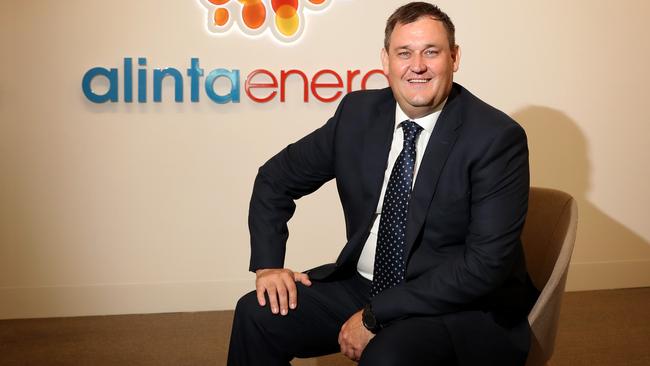Alinta in step with ACCC on gouging
Alinta has revived a call for network companies to write down the value of their poles and wires businesses.

Australia’s fourth-largest electricity retailer, Alinta Energy, has revived a call by the competition regulator for NSW, Queensland and Tasmanian network companies to write down the value of their poles and wires businesses while also warning of an industry-wide squeeze on retail margins.
Networks have recouped billions of dollars of extra revenue from customers following over-investment in state-owned networks, the Australian Competition & Consumer Commission said last year, calling for the companies to pass on the savings to customers.
Alinta will today reboot the regulator’s call, arguing that the “overspend” could be included in consumers’ power bills for the next four decades if writedowns are not addressed.
“We’ve heard very little since the ACCC suggested a writedown of the network overspend that’s allowing network businesses to recoup billions of dollars of extra revenue from customers,” Alinta chief executive Jeff Dimery will tell the Australian Energy Week conference in Melbourne today.
“The Grattan Institute estimated the overspend is worth $100-$200 a year for electricity customers in NSW, Queensland and Tasmania. If it’s not addressed with writedowns, the overspend in the regulated asset base could feature on bills for another 40 years — until those assets reach the end of their life.”
The NSW and Queensland governments were advised to write off up to $10 billion in overspending on their electricity grids or consign consumers to paying up to $400 more than they should each year for power.
The Grattan report found that the network component of bills surged 40 per cent on average across the eastern seaboard between 2007-08 and 2016-17. This was a major contributor to rising electricity bills, especially in NSW and Queensland. In Tasmania, network costs have been steady since 2011 but rose about 60 per cent in the decade before.
Energy Networks Australia responded at the time to the Grattan analysis by saying intervention to force writedowns would not be an effective way to bring down consumer costs and noted network revenues had fallen for the past three years.
Alinta also will say it has received approaches from second-tier retailers who are struggling because of tough retail margins.
“Retail margins have been squeezed by competition and regulatory interventions,” Mr Dimery will say. Margins “may be unsustainable for many retailers. That’s confirmed by approaches we’ve had from more than one retailer looking to sell up. Margins will need to expand over time when a more rational competitive environment prevails.”
Mr Dimery will also call for an end to solar subsidies, given the decline in renewable costs.
“Environmental costs, while they aren’t a big component of bills, are unnecessarily high,” he says. “Solar subsidies just aren’t fair for households that can’t afford them or don’t have space for them. Everybody ends up subsidising the third or so of households that have solar. At the extreme end, it does mean that a renter in Thomastown is kicking in for a system on the roof of a homeowner in Toorak. The price of solar has come down to the point that we don’t need to subsidise its uptake any more.”
Despite cheaper renewables entering the grid, wholesale electricity costs will still hinge on gas as the marginal price setter, according to Alinta. “Wholesale costs will come down as we transition to lower-cost renewables, but don’t expect it to happen overnight,” Mr Dimery will say.
“The single most important wholesale and energy affordability factor in the short term is gas. If we want to have flexible peaking capacity to firm up renewables and reduce the emissions intensity of the National Electricity Market — we’re going to need more gas, and cheaper gas.”


To join the conversation, please log in. Don't have an account? Register
Join the conversation, you are commenting as Logout